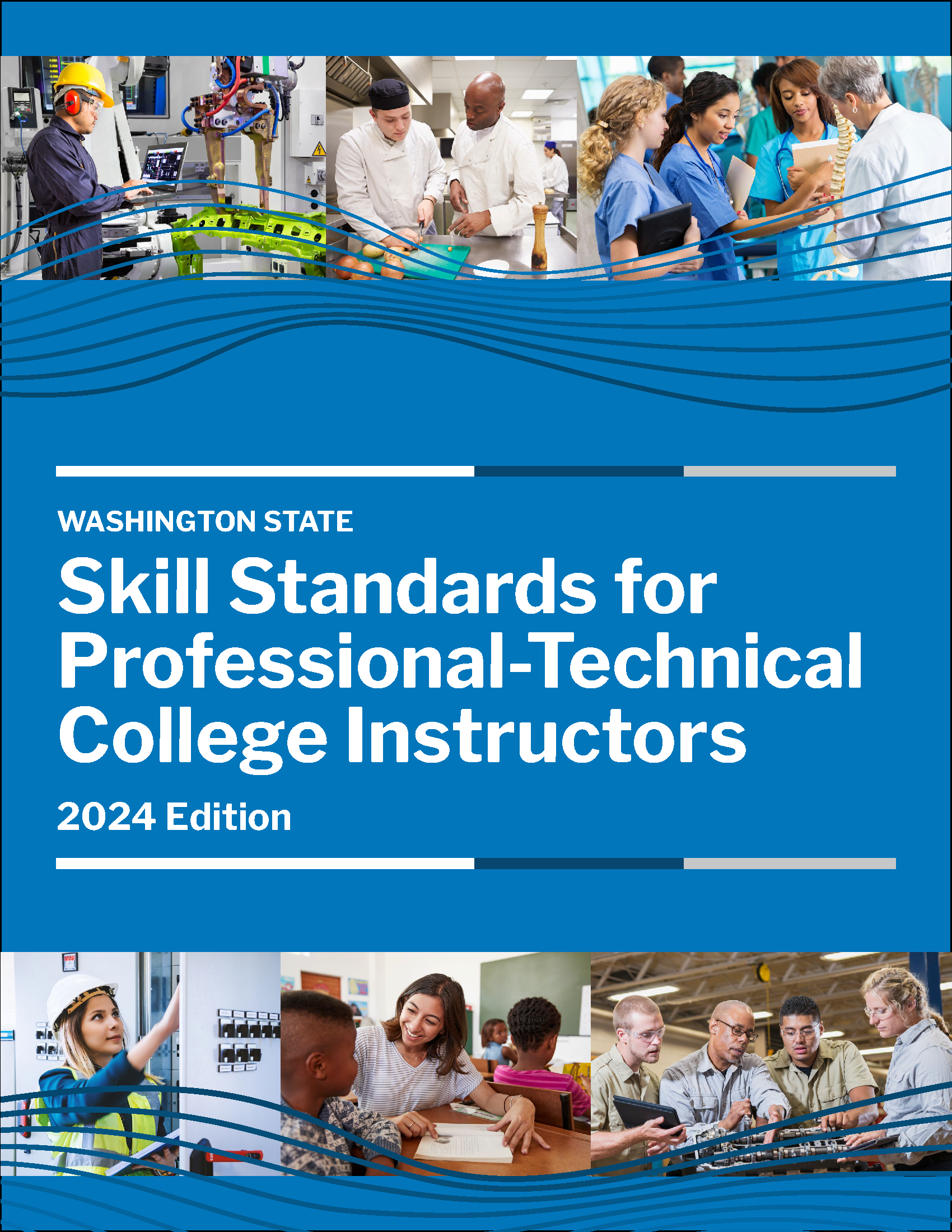Professional Development for Washington’s Community & Technical College System
Skill Standards for Professional-Technical
College Instructors
Skills standards are performance specifications that identify the knowledge, skills, and abilities an individual needs to succeed in the workplace. They provide measurable benchmarks of skill and performance achievement, answering the questions: What do workers need to know to succeed in today’s workplace? How do we know when workers are performing well?
Washington State was an early leader in the development and use of industry-defined skill standards, contributing to the development of a national model, and creating skill standards to align the needs of industry with the provision of workforce education and training. The state continues to lead with a commitment to embedding diversity, equity, and inclusion (DEI) principles into the 2024 Skill Standards, through a focused effort on identifying DEI competencies and integrating them into the skill standards as appropriate.



History & Background
The original Washington State Skill Standards for Professional-Technical College Instructors document was created in 2000. The 2012 update project replicated the original process and refreshed the original document.
The Instruction Commission (IC) directed the Workforce Education Council (WEC) in 2020 to perform a comprehensive review and redevelopment of the 2012 skill standards document to represent core work requirements and baseline occupational skills of a fully competent first-year instructor with the inclusion of a diversity, equity, and inclusion (DEI) component – an unprecedented undertaking.
Two focus groups were convened in 2022 and undertook a thorough review and timely update of the 2012 document: a 20-member skill standards focus group, and a 21-member DEI focus group (page 62). The skill standards focus group overhauled Critical Work Functions A-H and their attendant key activities, performance indicators, technical knowledge, and employability skills. The DEI focus group aligned DEI competencies to Critical Work Function D and recommended engaging DEI experts to guide the completion of the work. In 2023, a new focus group ensued and completed the scope of the work, the results of which can be viewed beginning on page 13.
This report reflects the findings and recommendations as gleaned from the three faculty focus groups and the process. It is intended to help inform the next steps and support a smooth transition into the follow-on phases of the work. The recommendations may be found in page 108.
Notable Firsts
In addition to contracted deliverables, this project trailblazed into uncharted territory, doubled down and expanded on past work, and achieved some singular accomplishments that significantly differentiate the 2024 edition from its forerunners. These include:
- Introduction of a competitive process for focus group member selection,
- Identification and alignment of DEI competencies into one critical work function, resulting in a proof-of-concept,
- Emergence of DEI themes and language,
- Identification and alignment of DEI competencies into all critical work functions,
- Identification and insertion of achievement levels for technical knowledge,
- Identification and insertion of achievement levels for performance indicators,
- Review and adoption of Department of Education Perkins Collaborative Resource Network Framework of Employability Skills,
- Evaluation and insertion of weighted levels of competency to employability skills for each key activity,
- Facilitation and implementation in a totally virtual format for easy and accessible participation, demonstrating the system’s commitment to innovation and adaptability,
- Achievement of statistically significant response rates for the focus group, verification, and confirmation surveys (across the three surveys, 100% of the colleges were represented), and
- Development of a unique website to house the skill standards at www.skillstandardswa.org.
These achievements evolved organically because of the focus groups’ thoughtful analysis of skill standards utility and a nimble facilitation process.



